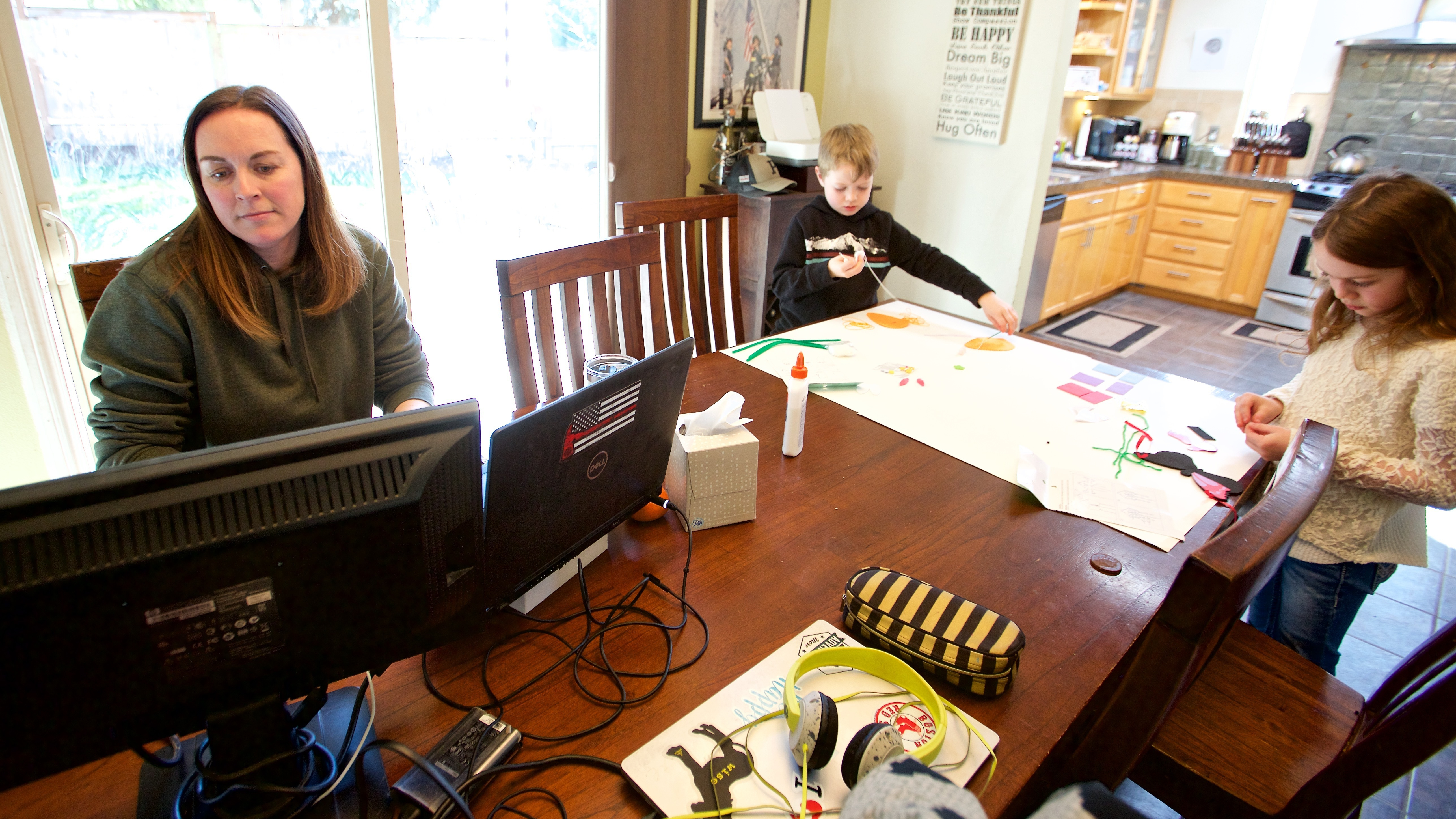China unveils how the future of work looks like

Editor's note: Matteo Giovannini is a finance professional at the Industrial and Commercial Bank of China in Beijing and a member of the China Task Force at the Italian Ministry of Economic Development. The article reflects the author's views, and not necessarily those of CGTN.
In these early days of spring when the rest of the world is still focused on respecting the severe lockdown policies decided by governments and when citizens are wondering when their lives will be back to normal, China has already fully restarted its working activity and planned the reopening of schools in major cities giving other countries a glimmer of hope about their future.
Many Western countries are now constantly and carefully observing China in order to understand what kind of outcome its actions and decisions are having and eventually to use its experience as a benchmark in the attempt of a prompt economic recovery from COVID-19.
One of the most important consequences of the lockdown in China and all over the world has been the dramatic increase in importance of smart working that has led Chinese companies to take prompt initiatives by guaranteeing the safety of their employees from one side and by maintaining the level of productivity and the respect of contracts and deadlines from the other side.
China, being the first country to be impacted by the pandemic, has naturally become an early mover towards remote working as a result of the imposed social distancing among people through the self-quarantine and job rotation policies established by companies and its experience is now thoroughly studied by government officials and management experts of other countries.
In this context, China's experience is now leading to new best practices regarding the future of work and to some learnings that, taking into consideration different legal, social and economic circumstances in other countries, may be applicable around the world.
Firstly, the rapid digital transformation has forced Chinese companies to reinvent themselves in real time through learning by doing approach that has required continuous adjustments due to the lack of experience of managing distance working relationships through e-mail, in-App chats and videoconferences.
COVID-19 has demonstrated that board meetings can be easily held using videoconferencing programs such as WeChat Work, DingTalk, Zoom and Skype, and the result is that decisions and consensus can be reached saving money for companies and stress related to the travel for employees, and giving the chance to multinational companies' leaders to be able to attend several meetings with offices located in different time zones the same day.
In addition, the introduction of AI-powered technologies has the potential to free employees from the execution of repetitive jobs giving more time to focus on projects of higher impact and on finding creative or strategic solutions that cannot be provided by machines.

Kim Borton works from home while her children Logan Borton and Katie Borton as they work on an art project in Beaverton, Oregon, United States, March 17, 2020. /AP
Secondly, remote working is having an impact on the life of individuals due to its highly flexible working hours. A typical working day was normally defined as 9-5-5 for its 9 a.m. to 5 p.m. for 5 days a week structure (or 9-9-6 in the Chinese high-tech industry), while smart working seems to lead to a 0-0-7 where employees can be potentially reachable at any time through online platforms.
The digital version of our daily jobs is going to have a clear impact over the life of people and for this reason it requires that every employee finds the right balance between family time, personal time, leisure time, and sleeping hours.
A good time management represents in this sense the only secret source leading to an increase in productivity and to a healthier work-life balance at a historical time when money is not anymore the only motivation but intangible benefits such as more flexibility, more time available to spend with the family or to cultivate hobbies can be key drivers for companies to guarantee talents' retention (e.g. Millennials).
Thirdly, organizations in China are experiencing a redesign of their company structure since working remotely, with members of teams isolated, it can lead to potential individuals' demotivating, misunderstandings and delays in the execution of tasks.
A more decentralized structure requires the establishment of a clear decision-making framework, a solid empowerment and accountability system and an effective communication channel as key components for the success of modern companies together with the formation of smaller teams that are easier to be managed, keeping people more engaged and able to execute strategies in a more efficient way.
In this regard, considering the dynamic evolution of organizations, people in charge of leadership positions need to identify all the time best practices and immediately share the know-how with the rest of the organization.
COVID-19 has permanently changed the way we work, and this transformation is expected to be incremental in the future with an increase in investments in technology and cybersecurity, and a decrease in other fixed costs such as real estate rent and office furniture.
Remote working has become a new normal that provides the optimal combination of increased productivity, reduced costs and talents' retention.
China's experience is showing to the rest of the world that to make a successful and smooth transition to the future of work, the right combination of an efficient technological infrastructure, an inclusive and supportive corporate culture, and the implementation of well-designed organizational processes are all key elements.
(If you want to contribute and have specific expertize, please contact us at opinions@cgtn.com.)

 京公网安备 11010802026164号 京ICP备17026440号-1
京公网安备 11010802026164号 京ICP备17026440号-1